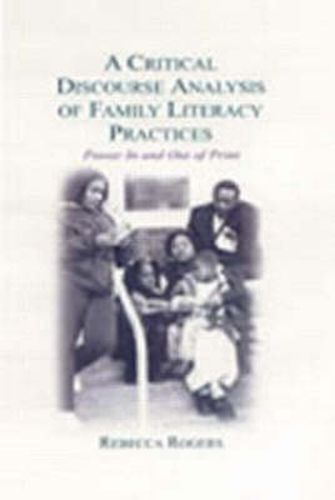Readings Newsletter
Become a Readings Member to make your shopping experience even easier.
Sign in or sign up for free!
You’re not far away from qualifying for FREE standard shipping within Australia
You’ve qualified for FREE standard shipping within Australia
The cart is loading…






In this cross-disciplinary work, Rebecca Rogers explores the complexity of family literacy practices through an in-depth case study of one family, the attendant issues of power and identity, and contemporary social debates about the connections between literacy and society. The study focuses on June Treader and her daughter Vicky, urban African Americans labelled as low income and low literate . Using participant observation, ethnographic interviewing, photography, document collection, and discourse analysis, Rogers describes and explains the complexities of identity, power and discursive practices that June and Vicky engage with in their daily life as they proficiently, critically and strategically negotiate language and literacy in their home and community. She explores why, despite their proficiencies, neither June or Vicky sees themselves as literate, and how this and other contradictions prevent them from transforming their literate capital into social profit. This study should contribute in multiple ways to extending both theoretically and empirically existing research on literacy, identity and power.
$9.00 standard shipping within Australia
FREE standard shipping within Australia for orders over $100.00
Express & International shipping calculated at checkout
In this cross-disciplinary work, Rebecca Rogers explores the complexity of family literacy practices through an in-depth case study of one family, the attendant issues of power and identity, and contemporary social debates about the connections between literacy and society. The study focuses on June Treader and her daughter Vicky, urban African Americans labelled as low income and low literate . Using participant observation, ethnographic interviewing, photography, document collection, and discourse analysis, Rogers describes and explains the complexities of identity, power and discursive practices that June and Vicky engage with in their daily life as they proficiently, critically and strategically negotiate language and literacy in their home and community. She explores why, despite their proficiencies, neither June or Vicky sees themselves as literate, and how this and other contradictions prevent them from transforming their literate capital into social profit. This study should contribute in multiple ways to extending both theoretically and empirically existing research on literacy, identity and power.